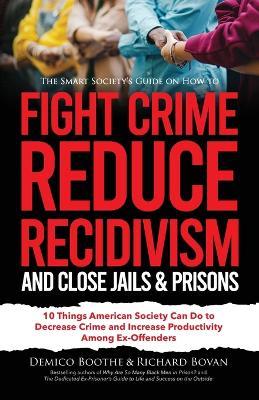An old social phenomenon known today as "cancel culture" is largely responsible for America's incessantly high crime, incarceration, and recidivism rates. It began with the unreasonable discrimination and disenfranchisement of virtually all ex-prisoners being enshrined into national law by the Thirteenth, Fourteenth, and Fifteenth Amendments of the U.S. Constitution. The nefarious wording within these post-Civil War amendments paved the way for the federal government, state governments, and mainstream society to basically declare that any person convicted of a "felony" is effectively no longer an American citizen. As a result, millions of nonviolent and first-time offender ex-prisoners have been forced to live lives of desperation and despair, being part of one of the most openly discriminated-against groups in America since Reconstruction.
Studies show that 100% of American adults repeatedly break the law in one way or another during their lifetimes. However, getting caught breaking the law is what engenders punishment and consequences, not simply committing an act of illegality. That being said, studies have also shown that there is generally no inherent physical or psychological difference between people who have been caught committing crimes and those who haven't. Therefore, there is no justifiable reason to render lifetime penalties of social disenfranchisement to citizens who have been caught committing first-time or nonviolent offenses after they have served their time in jail or prison. This post-incarceration mistreatment and extraneous punishment is the direct cause of America's high recidivism rate among ex-prisoners, not an inherent proclivity on the part of ex-prisoners for engaging in criminal activity. This means that with the right correctional recipe, America's criminal justice systems can greatly decrease their default reliance on punitive institutions and policies, incarceration, policing, and self-interested politicians and bureaucrats.
Written by two ex-prisoners who are also bestselling authors, this much-needed handbook specifies ten things that government and society can do together to greatly decrease our high crime, incarceration, and recidivism rates. It offers the necessary solutions that will subsequently enable the closure of many jails and prisons all across America.














